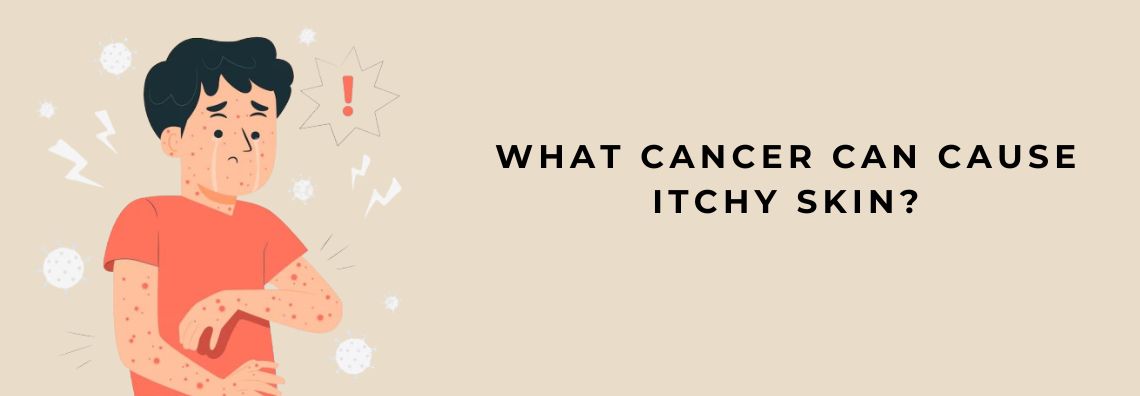
Itchy skin (or pruritus), is a common symptom with an extensive variety of causes, including everything from dry skin and allergies to infections and chronic illnesses. What you may not know is that itchy skin can sometimes point to cancer. While it is rare, persistent and unexplained itching can be seen with some types of cancer either as a direct cause or as a result of the body’s systemic response to malignancies.
It is essential to understand what the relationship between itchy skin and cancer means, especially if the itching is persistent and does not improve with standard treatments or is accompanied by other warning signs. This article reviews which cancers may be associated with itchy skin, why itchy skin occurs, and when to call a healthcare professional.
How Could Cancer Lead to Itchy Skin?
Itching related to cancer can be due to many causes:- Direct locality: Some forms of cancer, like (cutaneous lymphomas) can affect the skin.
- Immune system: Itching occurs via an immune response to cancer in which the immune system informs the body to produce chemicals (cytokines) that elicit itch.
- Bile accumulation: Cancers of the liver and bile duct may lead to a build up of bile salts in the skin, producing significant and intense itching.
- Treatment related: Chemotherapy, radiation, and targeted therapies may also contribute to dry, itchy, or irritated skin.
Itching can be local or general, mild or severe. Itching could also be an isolated symptom or include other symptoms like rashes, bumps, and visible skin changes.
Cancers Which Most Commonly Cause Itching:
1. LymphomaHodgkin lymphoma and non-Hodgkin lymphoma are among the better recognized cancers that can be associated with itching. Itching is sometimes the first noticeable symptom of either.
2. Liver CancerLike other liver diseases (for example cirrhosis or hepatitis), liver cancer can cause cholestasis when biliary flow is impaired or obstructed.
3. Pancreatic CancerPancreatic cancer can cause biliary obstruction, particularly when it involves the head of the pancreas, from pressing on and occluding the bile duct. That can cause itching.
4. Skin Cancer (e.g., Melanoma)Melanoma and other skin cancers are not a common cause of diffuse itching, but localized itch can occur in the vicinity of the tumor.
5. LeukemiaLeukemia is mainly a cancer of blood and bone marrow. Some patients with leukemia experience generalized pruritus, but not common.
6. Gallbladder and Bile Duct NeoplasmsThese cancers can obstruct the biliary ducts and similarly lead to cholestasis and pruritus.
Possible Reasons for Cancer Related Itching
Even when cancer is not the cause of itching, things that can lead to itching include:
- Cancer treatments (chemotherapy, radiation).
- Kidney failure or iron deficiency – both are common in advanced cancer.
- Paraneoplastic syndromes, which are very rare conditions cause the immune response to cancer.
When to Seek Medical Attention
Not all itching equals cancer, and most causes are benign (eczema, allergy, dry skin). You should see a doctor if you have:- An itch that is persistent and unexplained
- Little or no rash or if skin looks normal
- An itch that accompanies night sweats, unexplained weight loss, and swollen lymph nodes
- An itch that worsens or spreads
- Jaundice or dark urine
Early medical evaluation can exclude or identify serious conditions, including cancers.
Diagnosis and Treatment
To examine whether cancer is contributing to your itching, a physician may complete the following:
- Blood tests that look for liver function, kidney function, or inflammation
- Imaging scans (ultrasound, CT, or MRI) only if internal cancers are suspected
- Biopsy of clearly affected tissue or lymph nodes
- Examine the skin to evaluate for dermatologic or cutaneous cancers
The treatment will depend on the cause. If a cancer diagnosis is made, treating the underlying cancer will often assist with alleviating the itch. While awaiting diagnosis and treatment, possible symptom relief measures may include:
- Topical creams or/or corticosteroids
- Antihistamines or prescription medication
- Phototherapy
- Moisturizers and gentle skin care routine
Home remedies for itching
Itching (pruritus) during cancer treatment may be related to the cancer itself, medications (such as chemotherapy, immunotherapy, or targeted therapy), or serious above all dry skin. The following are safe, commonly recommended home remedies to help relieve itching:
1. Regular Moisturizing- Use a fragrance-free, hypoallergenic cream or ointment.
- Apply while still damp right after bathing to trap in moisture.
- Utilize cool damp clothes on itchy areas.
- You can also do colloidal oatmeal baths.
- Do not take hot showers (take a lukewarm shower).
- Do not use scented soap, lotion, or detergent. Wear loose and soft cotton clothing.
- Put 1 cup of baking soda or colloidal oatmeal in a lukewarm bath and soak for 15–20 minutes.
- Pure Aloe Gel (without alcohol or fragrances) may help irritation.
- Use a humidifier, especially in dry areas, or when heating your indoor space.
- Drink plenty of fluids; classically skin is hydrated from the inside out.
- Calamine lotion or creams with pramoxine or menthol can help with itching.
If you are experiencing severe, widespread, or rash accompanying your itching, alert your oncologist or nurse.
Concluding Thoughts
Itchy skin is more commonly due to benign reasons; however, it can sometimes indicate a more serious underlying cause, such as cancer. The most commonly associated malignancies related to itching are lymphoma, liver cancer, pancreatic cancer, bile duct cancer, gallbladder cancer, and certain skin cancers.
If you’re experiencing chronic, unexplained itching, especially with associated systemic symptoms like fatigue, weight loss, or jaundice, do not ignore it. Consult your healthcare provider to rule out any serious cause and to receive proper care and it is only curable with proper skin cancer screening treatment.